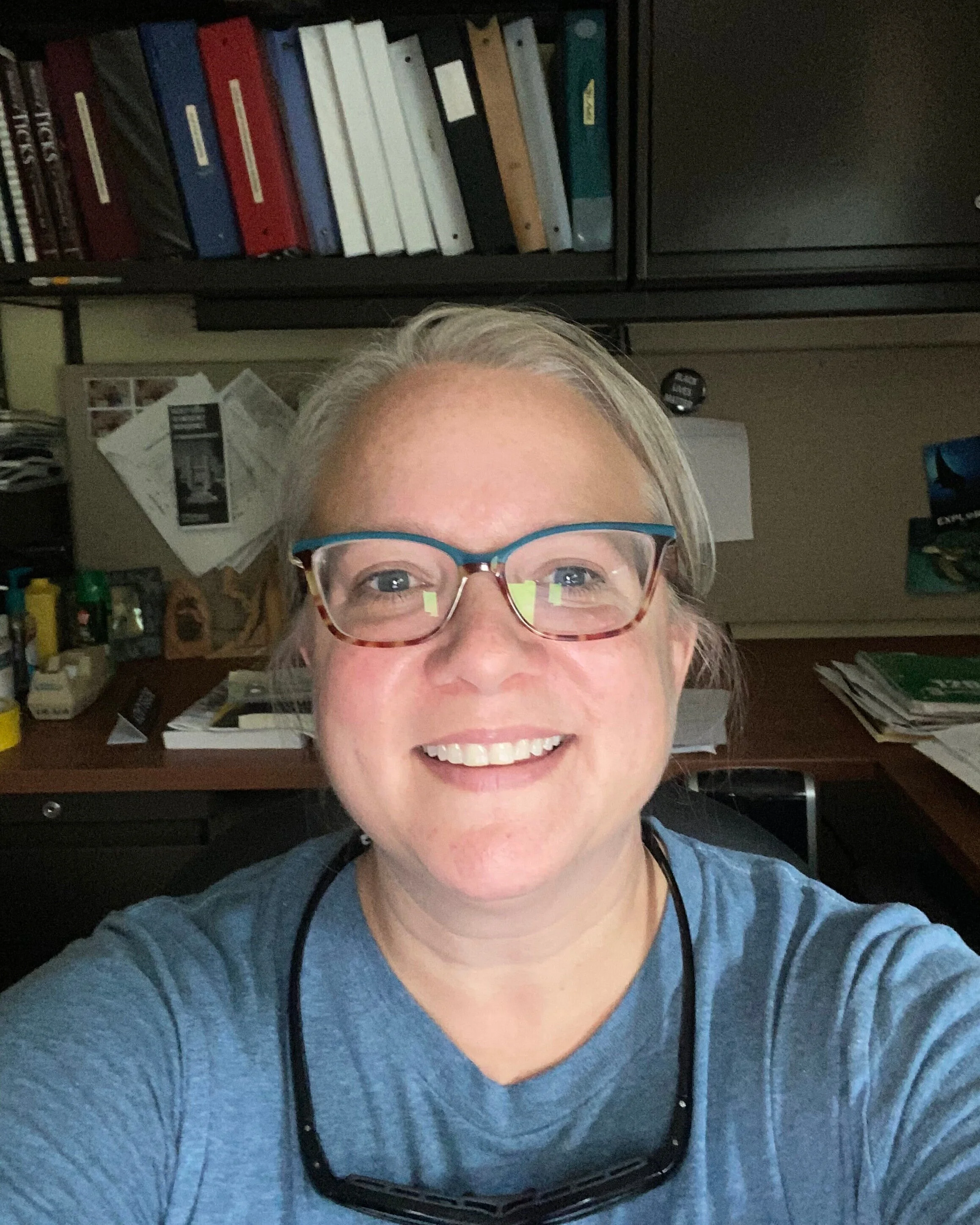HUMANS OF TYSON 2021
Kim Medley
Tyson Director
PI Mosquito Disease/Ecology Team
What has been the most difficult challenge of your team's research over the last year or so, and have there been any surprisingly positive outcomes?
Tyson (more broadly than just our lab) is a place, but we're also a community of people that cares deeply about what we do and about one another. (I'm getting teared up.) The pandemic has had very direct impacts on people's lives, on their families’ wellbeing. We really have shifted. We have always put a lot of focus on the people doing the work, on their humanity first, which is easy to forget when you're collecting data and setting up experimental designs, when you're focused on how many sites you need to have or how many replicates. It's been incredibly tough to see people go through all the challenges that they've been facing over the past year with the pandemic. We've backed off in a lot of ways. We've cut ourselves some slack and taken time to (I hate to use the phrase) “balance work and home life.” It has been important to be humans.
That said, with all of the negative side of the pandemic, some positive things have floated to the surface in terms of mechanics and logistics, and how we do things, that I think we'll probably keep long-term. One example is using YouTube for weekly seminars. As you know, those are all live-streamed right now, and there's some limitations to that in terms of building community and networking. But if we think about going back, to fully in-person seminars, we realize that a lot of folks can't make it because it's at four o'clock on a Thursday. There may be parents that have to pick up kids at daycare and can't make it all the way out here. We actually set-up YouTube streaming before the pandemic, but now that people are more comfortable with it, more people take part in seminars that way. So that's one good thing.
“Tyson is a community of people that cares deeply about what we do and about one another.”
How would you say your research has evolved at Tyson?
I started at WashU in 2013. At that time, I was focused on really broad scale research, macro ecology, if you will. Using the same tiger mosquito system and with Katie as a partner in our lab, I've started to focus more on local ecological factors that influence or could influence exposure to mosquitoes by humans or disease transmission. Another thing we've shifted into is doing a lot of work across the urbanization gradient. It allows us to learn about how the work interfaces with environmental justice. We're still trying to learn how to integrate environmental justice questions into our work. And if not to integrate questions, to go out into the field more conscientiously and collaboratively across the city. Rather than coming in to communities as these "scientists coming to collect data," actually make it a collaborative process with the community.
Do you see hope fitting into your work?
In our line of work, sometimes we address questions that can be interpreted as incredibly negative and depressing, like the effects of climate change on certain aspects of the environment. Or how climate change influences environmental justice, environmental racism, things like that. It's easy to get depressed about the state of our environment and the way humans are forced to interact with it. However, being scientists under those conditions allows us to be hopeful because we are advancing our understanding of what drives those inequities. And... if we didn't have a positive outlook on what our work could do, we wouldn't get anywhere.
In addition to her extensive administrative duties, Kim collaborates with Tyson staff scientists on several projects. Learn more about her research here.


